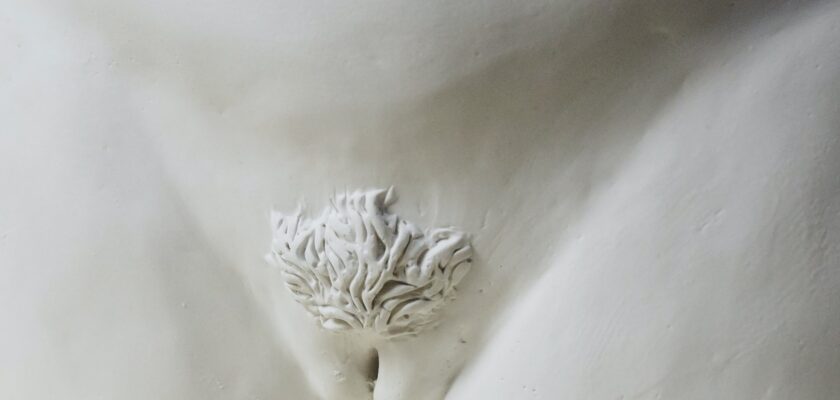Vaginal teeth is a common myth in folklore and fairy tales around the world. These stories suggest that a female’s vulva has teeth, and penetrative sexual intercourse could result in penile injury or emasculation, Lorena Bobbitt style.
The teeth in a woman’s vulva may be the result of a benign tumor called a teratoma. These tumors contain pluripotent cells that can become multiple types of tissue.
Origins
Vagina dentata, or teethed vagina, is a folkloric tale and myth in which a female’s genitals contain sharp teeth. The implication is that penetrative sexual intercourse with such a woman would be likely to provoke penile injury and possibly even emasculation or castration, as in the infamous Lorena Bobbitt case. The vagina teeth theme is prevalent in the folklore of numerous cultures, including the Maori, Baiga tribe myth and Russian, Indian, Samoan and Japanese cultures. It is also found in the fairy tales of the Inuit and Ainu people. Interestingly, it is also the name of a rare medical condition affecting the vagina called a dermoid cyst.
Despite the fact that this mythical concept is entirely unfounded, it remains the cornerstone of body horror culture, and the fear of the toothed vagina is at the root of the phallic fright that drives men to extremes in sexual behavior. This myth is the inspiration for many films, such as the 2008 horror film Teeth about a celibate teenage girl who discovers that her vagina has teeth and will bite off the penis of anyone that invades it without her permission. Although some analysts have interpreted the vagina-with-teeth myth as an expression of castration anxiety, the more interesting argument is that it is actually a culturally constructed symbol of male fear of women’s reproductive potential.
Symptoms
A woman with vaginal teeth has small, painful fluid-filled blisters on her genitals or mouth. These eventually break open and crust over. She also may have itching in the area. The symptoms develop within 2-30 days and are most severe the first time they appear. The blisters aren’t a sexually transmitted infection (STI), but the person who has them is likely to have herpes, chlamydia or gonorrhea. These are STIs that can be passed through unprotected sex.
The genital skin is sensitive and has its own delicate balance of bacteria called the microbiome. Disruptions in this balance can cause bacterial vaginosis and other conditions, such as the painful condition dyspareunia. Localized vulvodynia is pain limited to the area around the hymen, while generalized vulvodynia is a more widespread and severe form of the condition.
Women can lower their risk for BV by wearing a condom and using a dental dam during oral sex. They can also wear the copper intrauterine device (IUD). Douching isn’t helpful in preventing BV, and it may make it worse by washing harmful bacteria into the upper genital tracts. Hormonal birth control pills, which contain estrogen and progestin, might help prevent recurrent BV. Avoiding irritants like talcum powder and feminine hygiene sprays and avoiding tight-fitting clothing can help as well. If you have recurring symptoms, speak to your doctor about treatment options.
Treatment
The exact cause of vaginal teeth is unknown, but it may be related to hormonal imbalances during fetal development. This condition is usually harmless, but it can lead to pain, bleeding, and urinary tract infections. The severity of the symptoms varies from person to person, and some people do not experience any problems at all.
Despite the tongue-in-cheek tone of the film, vaginal teeth aren’t actually real, but they have been depicted in art and folklore throughout history. Legends and stories describe toothed vaginas as a terrifying symbol of women’s power, as they could bite anyone who enters without consent. These images challenge patriarchal phallocentric cultures by refashioning the female sexual organs as powerful weapons capable of aggression and harm.
Teeth is one of the most famous movies to feature this mythological anatomical phenomenon. It follows Dawn, a teenager who discovers that her vulva has teeth that will bite anyone that enters without permission. The film explores the interplay between religious devotion and kink/fetish, while subverting the concept of femininity and sexuality.
The genital area has a rich blood supply, which means that even minor injuries can cause a lot of bleeding. A hematoma, or pocket of blood, is a serious injury that requires medical attention, as it could potentially be life-threatening. Symptoms of this condition include swelling, tenderness, or redness around the vulva and labia.
Prevention
It’s very rare for teeth to grow in a woman’s vagina, though it is possible. In some cases, a type of tumor called a dermoid cyst can form in the vulva canal. These cysts are caused by the uncontrolled growth of pluripotent cells, which have the ability to become many different types of tissue. If these cells develop into tooth, bone or hair tissues, it can cause pain and may need to be surgically removed. The most common type of teratoma is benign, but some are more serious and can cause a host of symptoms including headaches, vaginal itching or pain during sexual intercourse.
Women can protect themselves against the risk of oral sex and sexually transmitted infections (STIs) by using dental dams during sex. These are the same latex rectangles dentists use to isolate teeth during a dental procedure. During oral sex, you can place the dental dam over the genitals or anus to create a barrier.
Even though the condition of vaginal teeth is relatively rare, it is important to recognize any symptoms and seek treatment if needed. Schedule a consultation with Nao Medical today to learn more about your treatment options and preventative measures. We are committed to providing comprehensive healthcare solutions and look forward to helping you feel your best.

